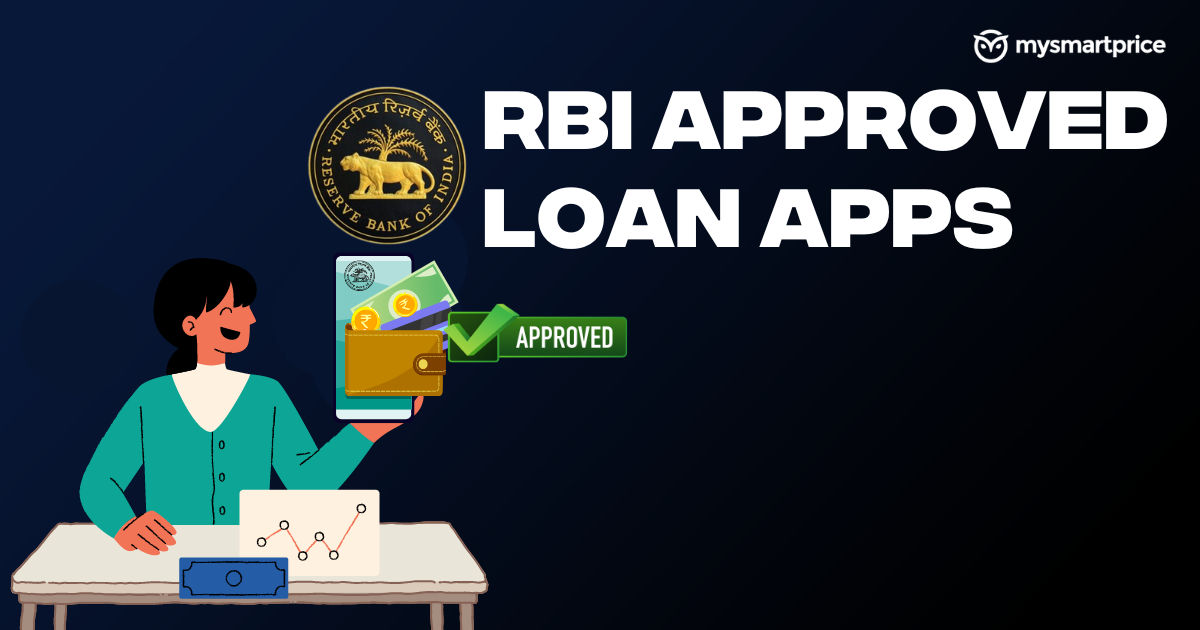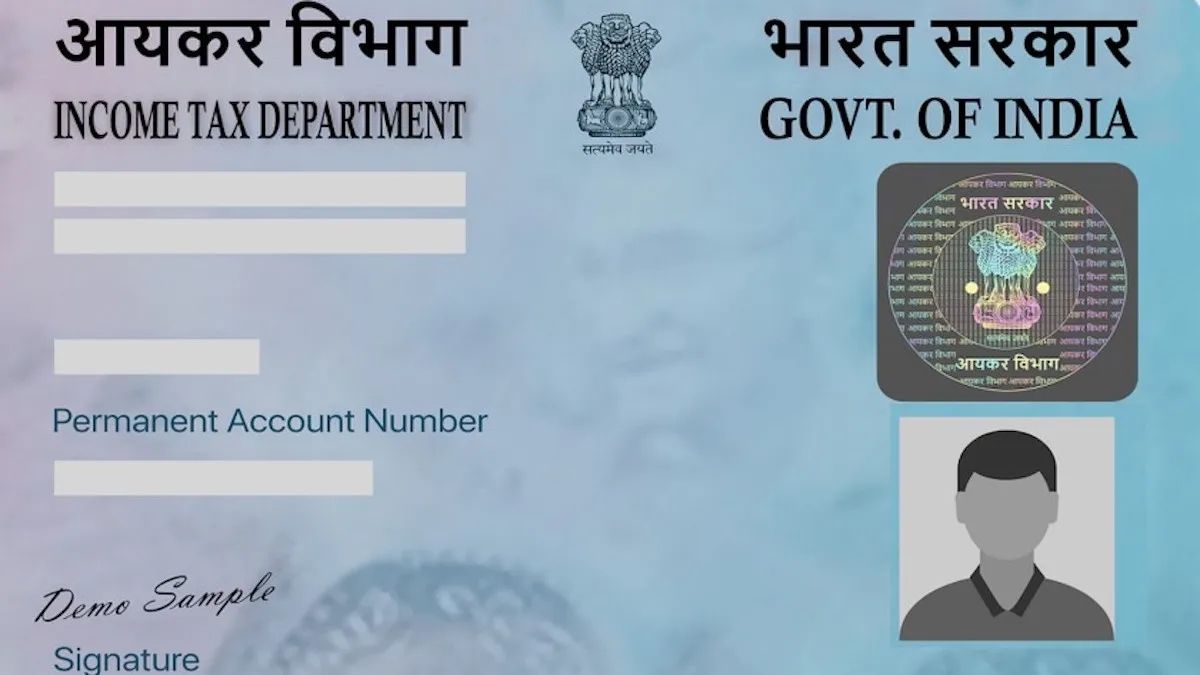
The rise of loan apps in India has made it easier for individuals in need of quick cash to access funds. However, this growth has given rise to both legitimate and potentially fraudulent platforms. Knowing how to identify safe loan apps is crucial to protecting your financial well-being. To help you with the same, we have curated a list of the top 10 RBI-approved loan apps in India.
Disclaimer: MySmartPrice does not endorse any of the loan apps mentioned in this article. The list of loan apps mentioned here is based on reviews and ratings available in the public domain. Users are requested to select a loan app after doing thorough external research, and MySmartPrice does not guarantee any loan app or NBFC.
List of RBI-approved Loan Apps in India
The Reserve Bank of India (RBI) has over 10,000 NBFCs across India that can disburse loans to users. Here’s a list of 30 reputed loan apps which are registered with the RBI.
| Sr No | App Name |
| 1 | Bajaj Finance |
| 2 | Navi |
| 3 | Dhani |
| 4 | KreditBee |
| 5 | PostPe |
| 6 | Paytm |
| 7 | LazyPay |
| 8 | ZestMoney |
| 9 | Nira |
| 10 | Hero Fincorp |
| 11 | Shriram Finance |
| 12 | Moneyview |
| 13 | Pocketly |
| 14 | True Balance |
| 15 | PaySense |
| 16 | Simpl |
| 17 | Slice |
| 18 | Ring |
| 19 | Sundaram Finance |
| 20 | Kissht |
| 21 | Stashfin |
| 22 | Mpokket |
| 23 | Muthoot Finance |
| 24 | Branch |
| 25 | NoBroker |
| 26 | Fibe (EarlySalary) |
| 27 | MoneyTap |
| 28 | MobiKwik |
| 29 | CashE |
| 30 | Ram Fincorp |
If you are getting confused about selecting the best loan app, then don’t worry as we have selected the top 10 best-rated loan apps that you can use to get a loan.

Bajaj Finance
Bajaj Finance is a well-known NBFC in India in the consumer loans and lending category. If your credit history is good, Bajaj Finance can offer you the best interest rates in the market. They can also lend money for longer durations if you fulfil their criteria.
The only drawback with Bajaj Finance is that their marketing team can be overwhelming. We advise you to use your secondary phone number to register with them. However, one must not ignore their important calls related to KYC and loan repayment to ensure a smooth loan experience.
Download Bajaj Finance (Android | iOS)
Navi
Navi is a relatively new NBFC but has a solid background as it was founded by Sachin Bansal, who was also the founder of Flipkart. They offer a paperless loan option with fully digital KYC. However, Navi’s loan criteria are slightly strict, and they may ask for additional documents to process your loan.
True Balance
True Balance can disburse loans as quickly as 30 minutes. They have a fully digital onboarding process. However, the credit limits provided by True Balance can be lower than other NBFCs. If you are looking for a short-term and low-amount loan, then True Balance is a good option.
Download True Balance (Android | Not available on iOS)
KreditBee
KreditBee is one of the earliest digital loan providers in India. They provide instant loans up to Rs 5 lakhs through their official app. If you don’t have a strong credit history, KreditBee can help you with a loan. But in such cases, you might have to pay higher interest rates.
Download KreditBee (Android | iOS)
Muthoot Finance
Muthoot Finance is a veteran in the lending space of India. Although the company is mainly known for its gold loans, they have also ventured into digital personal loans. It’s a trustworthy entity to borrow money from and can offer you decent credit limits starting from Rs 50,000.
Download Muthoot Finance (Android | iOS)
Branch
Branch has an app-first approach to lending you loans. They are registered with the RBI as an independent NBFC. The Branch App offers loans up to Rs 1 lakh through a completely digital KYC process.
Download Branch (Android | Not available on iOS)
LazyPay
LazyPay gained popularity for its BNPL (Buy Now Pay Later) services among Indian youth. After the new RBI guidelines regarding BNPL, LazyPay started offering instant personal loans through its app. LazyPay offers loans up to Rs 5 lakh.
Download LazyPay (Android | iOS)
mPokket
mPokket is best suited for small-ticket loans. It offers loans up to Rs 45,000 with a maximum duration of 120 days. Once you complete KYC with all required documents, mPokket disburses money within 1 day.
Download mPokket (Android | Not available on iOS)
Fibe (EarlySalary)
Formerly known as EarlySalary, the app offers loans up to Rs 5 lakhs. They are known for their fast loan disbursals through their online method. However, Fibe’s interest rates can be on the higher side, depending on your credit score and other factors.
Hero Fincorp
Hero Fincorp was founded under the Hero-Honda partnership way back in 1991. The company was mainly known for its vehicle loans, but now they have ventured into personal loans as well. Hero Fincorp offers loans up to Rs 3 lakhs with a maximum tenure of 36 months.
Download Hero Fincorp (Android | iOS)
Documents required for loan
The exact list of documents required to process a loan depends on the app and NBFC that you choose. In most cases, three major documents are required which are Proof of Identity, Proof of Address, Income Proof, and most importantly PAN Card.

Aadhaar Card and Driving License are widely accepted as identity and address proofs. Income proofs can include your salary slips for salaried proofs, or income tax return (ITR) forms.
Note that certain NBFCs may ask for additional documents like your bank statement, rental agreement, etc. based on their internal policies. If you don’t have a good credit history, then getting a loan from any app or NBFC can be a little hard.
How to check if a loan app is genuine?
Before downloading or using any loan app, follow these steps to ensure its legitimacy.
Step 1: Check for Reserve Bank of India (RBI) Approval
The RBI maintains a list of approved NBFCs (Non-Banking Financial Companies) and banks authorized to operate lending apps. Hence, it is advised to check the list of approved institutions before taking a loan. You can check out the full list of RBI-approved NBFCs here.
Step 2: App Store/Play Store Reviews
Reviews from other users can provide valuable insights into the app’s reputation. They can help identify red flags like complaints of hidden fees, harassment, or unauthorized data access. You can also refer to other online portals like DesiDime, Technofino, etc. and ask different users for their experience with any loan app.
Step 3: Look at the Company Website
Genuine lenders will have a professional website detailing their terms, contact information, and license details. A shady-looking official website immediately raises some concerns, and in such cases, users should avoid that NBFC or app.
Step 4: Transparency of Terms and Fees
Reputable lenders disclose interest rates, processing fees, late payment penalties, and other loan terms before you sign any agreement. If your loan app is not revealing the important conditions of the loan clearly, it is advised to stay away from such institutions.
Step 5: Data Privacy
Avoid using apps that demand excessive permissions or have unclear policies on how they plan to use your data. Although most finance-related apps now ask for location and contact permission by default for verification and KYC purposes, users should look for irrelevant permission such as a microphone, access to personal emails, administrator privileges on Android, etc. If an app is asking for too many unnecessary permissions, it is better to check the reviews of that particular app before proceeding with the loan.
Loan App vs Bank Loan: Which is better and safer?
Loan apps offer undeniable convenience. The application process is entirely online, leading to faster processing and quicker disbursement of funds. They often require less paperwork than traditional bank loans, making them accessible to those who may not qualify for bank credit. However, this convenience comes at a cost. Loan apps typically charge higher interest rates and have shorter repayment periods, potentially leading to higher monthly payments.

On the other hand, bank loans generally offer lower interest rates, especially if you have a good credit history. They are ideal for larger loan amounts. As banks are well-established and highly regulated institutions, they provide a greater sense of security. The trade-off is that the application and approval process for bank loans can be slower and may involve more documentation. Banks might also have stricter eligibility criteria in terms of income and credit scores.
As a rule of thumb, it is always recommended to prefer a proper bank if you trying to get a loan. However, if your circumstances don’t allow you to approach a bank, then you can carefully opt for a loan app by doing a proper background check of that app. In both cases, you should read all the loan-related documents properly and ensure that there are no hidden costs involved in your loan.
FAQs
1. Do loan apps track my phone’s location?
A loan app may track your location during the eKYC process for verification purposes for your proof of address. Other than eKYC or the onboarding process, loan apps are not allowed to track your location in real-time.
2. Are loan apps safe to use?
As long as you are borrowing money from an RBI-approved NBFC, loan apps are safe to use. The RBI has strict regulations and guidelines for registered lending services to protect both, the borrower and the lender. Ensure that you read the loan documents carefully and pay EMIs on time, and it becomes safe to use loan apps.
3. Do loan apps message my friends if I don’t repay the loan?
RBI-approved loan apps are not allowed to message your personal contacts in case you don’t repay the loan. However, the NBFC behind the loan app may send an official recovery agent to your registered address when you default on your EMIs.











